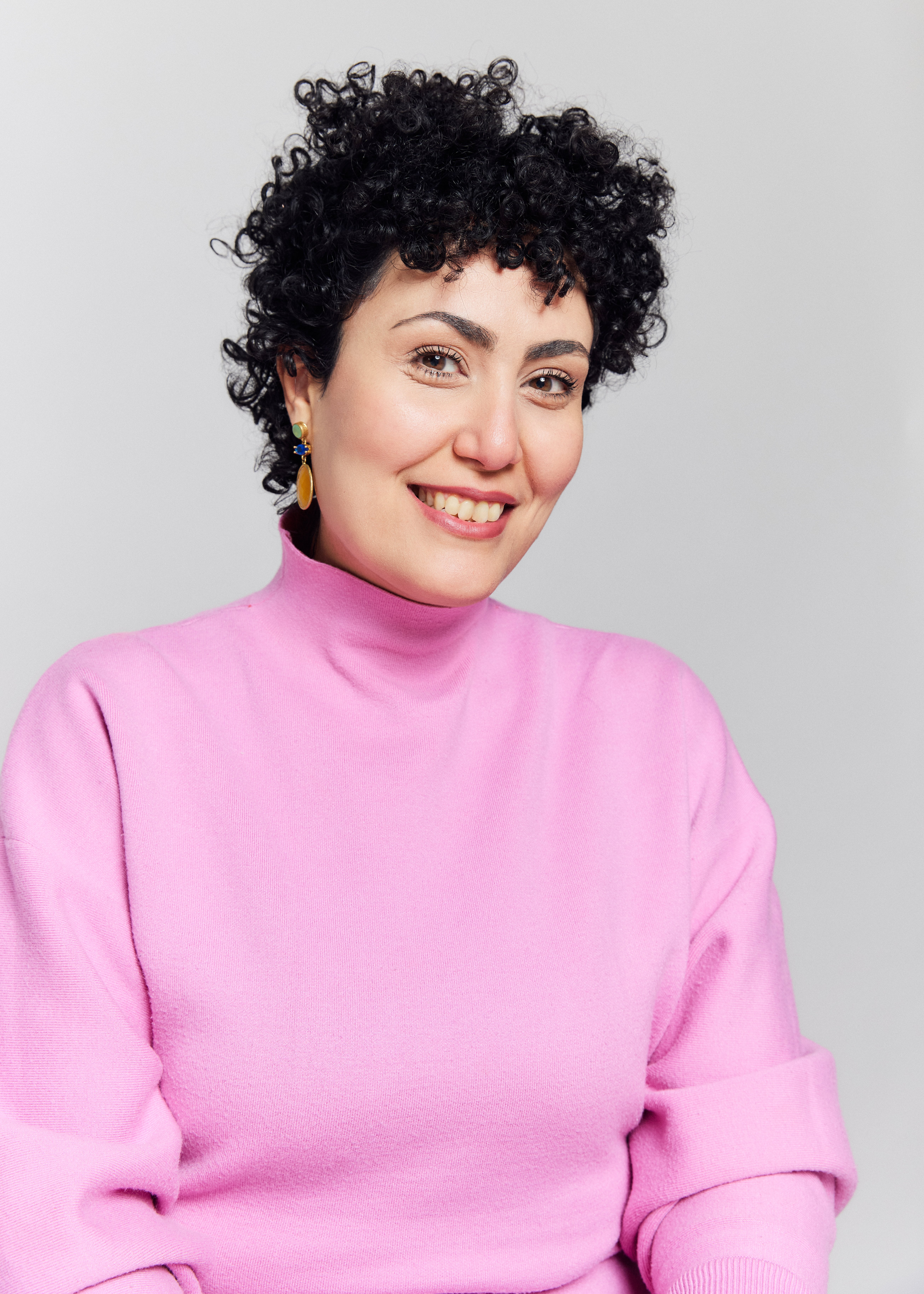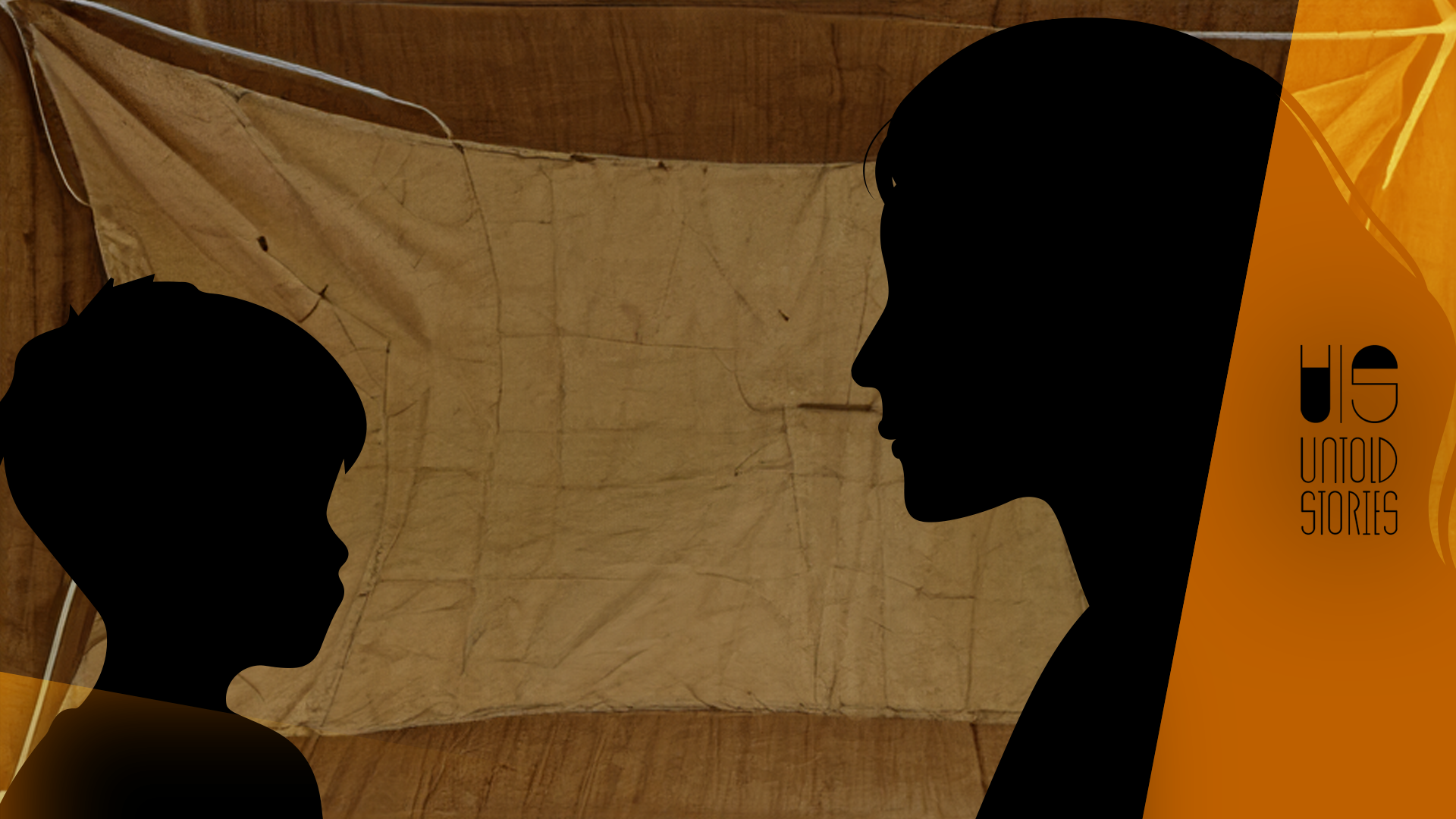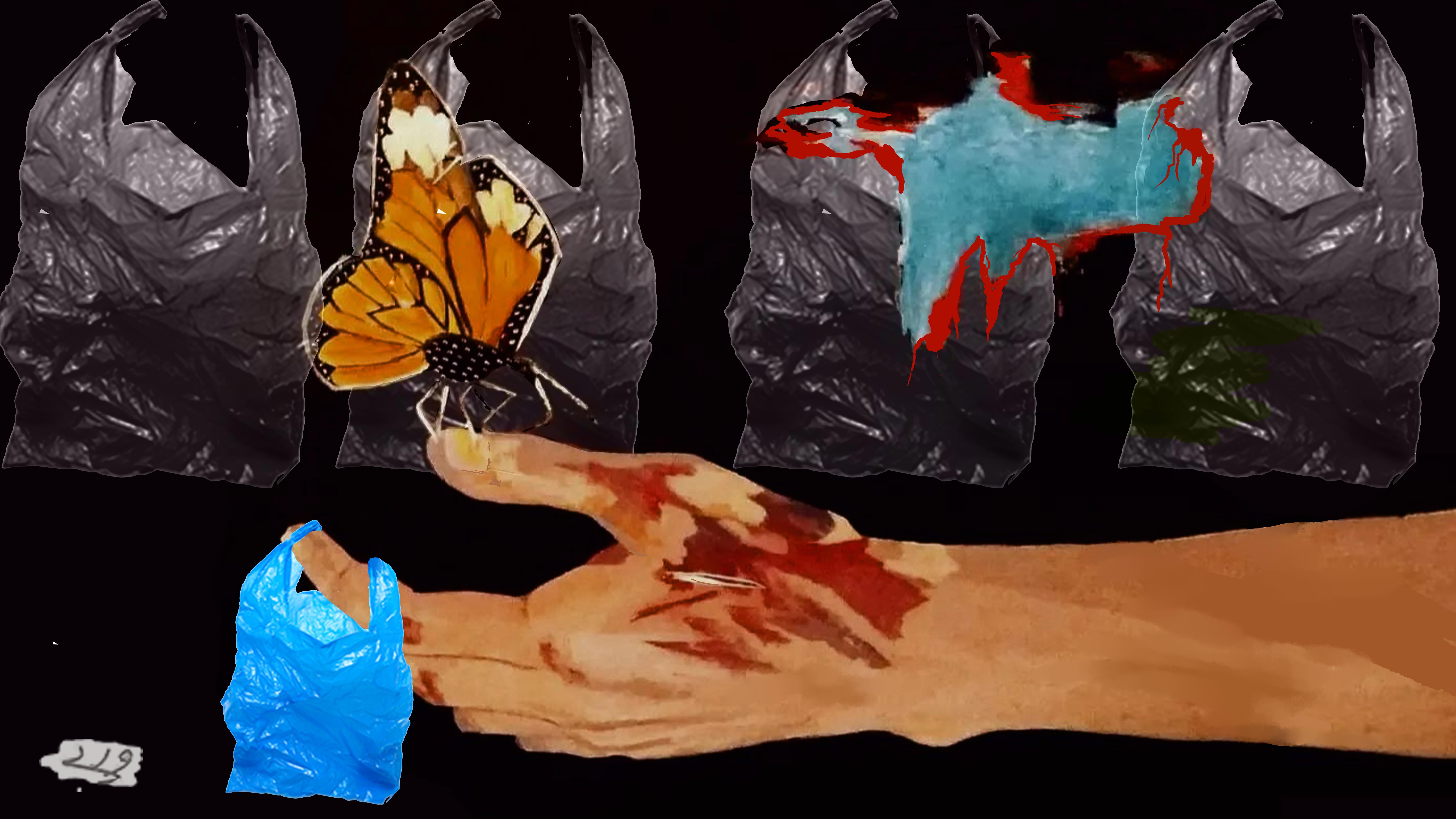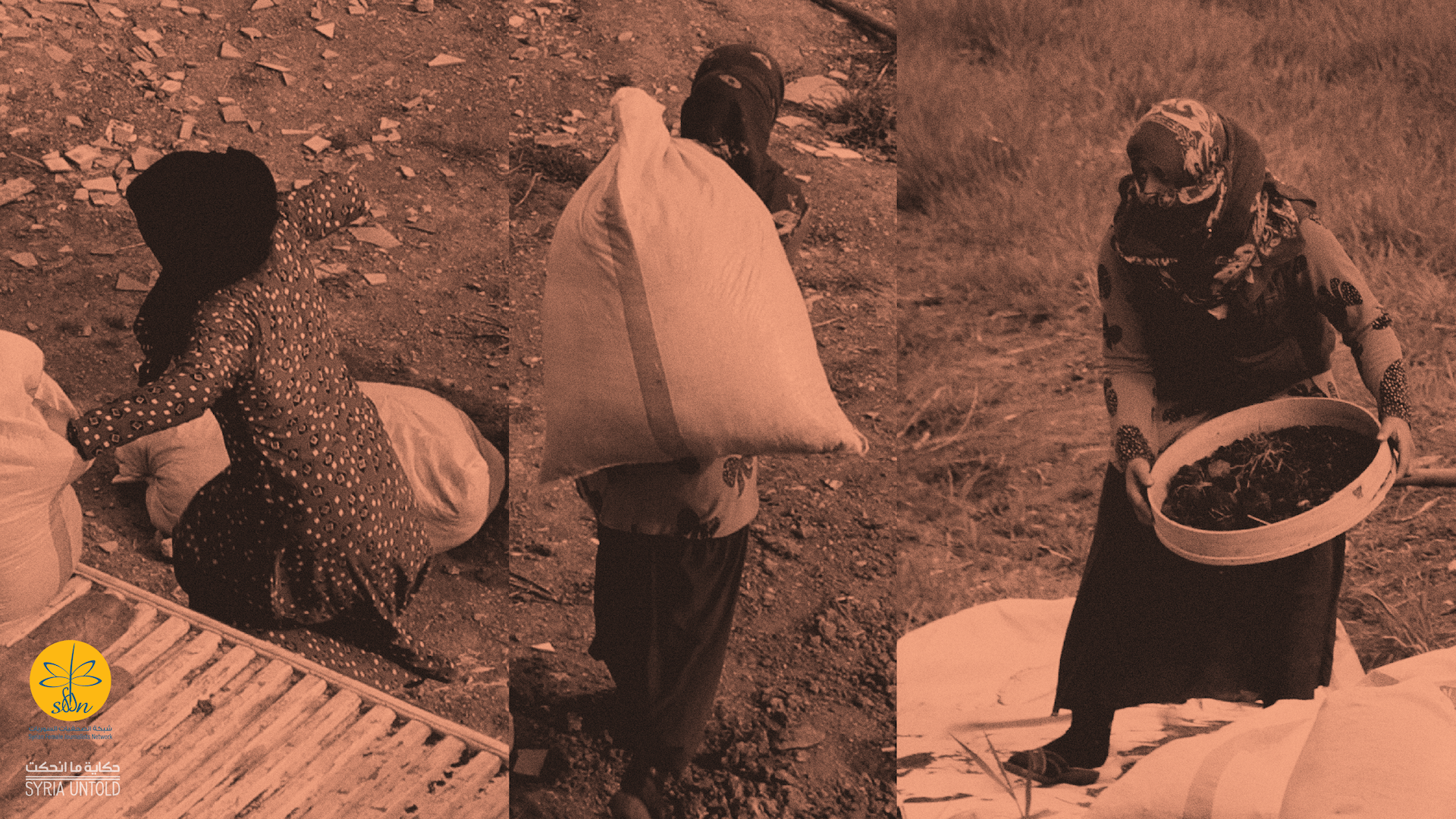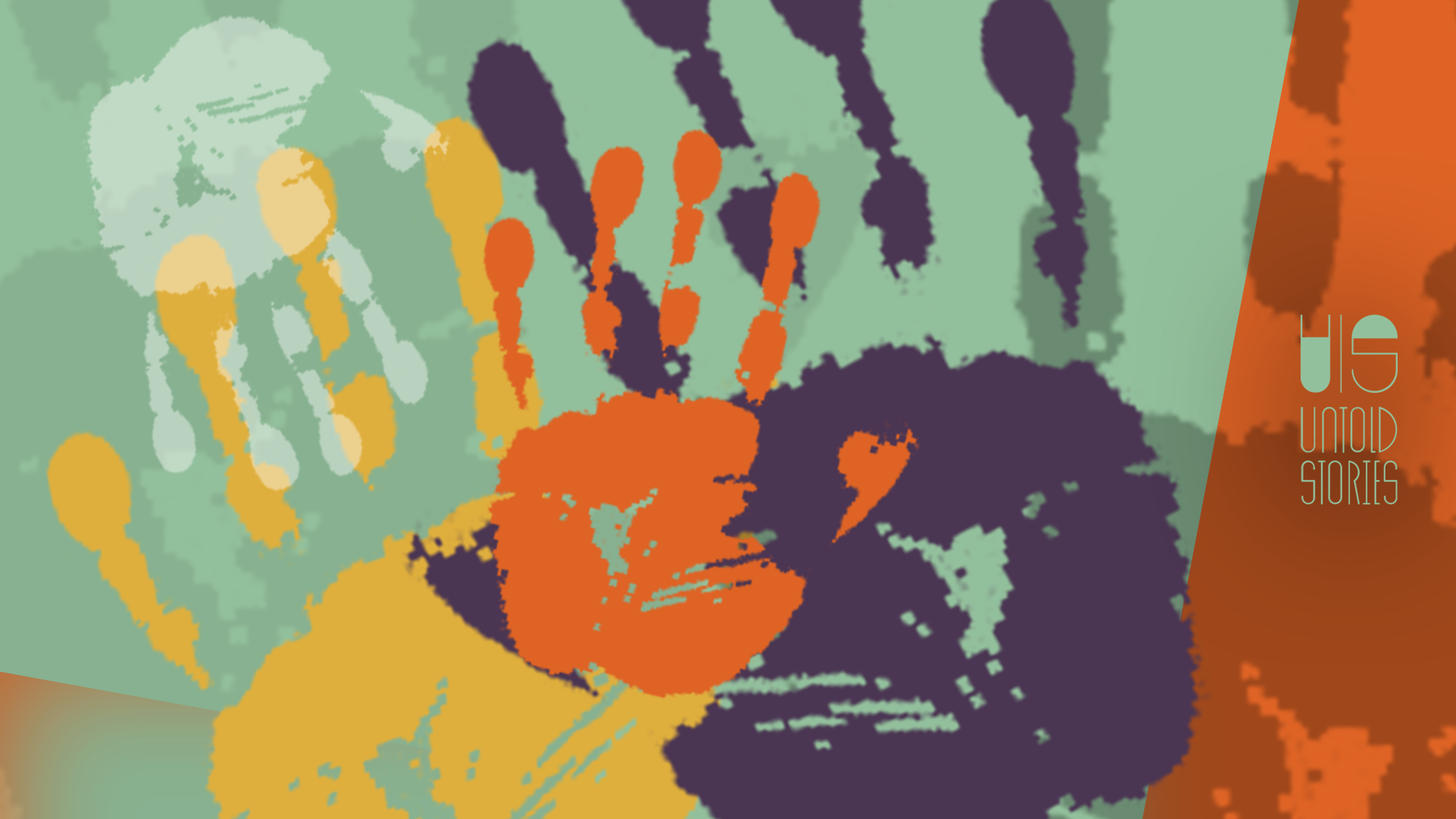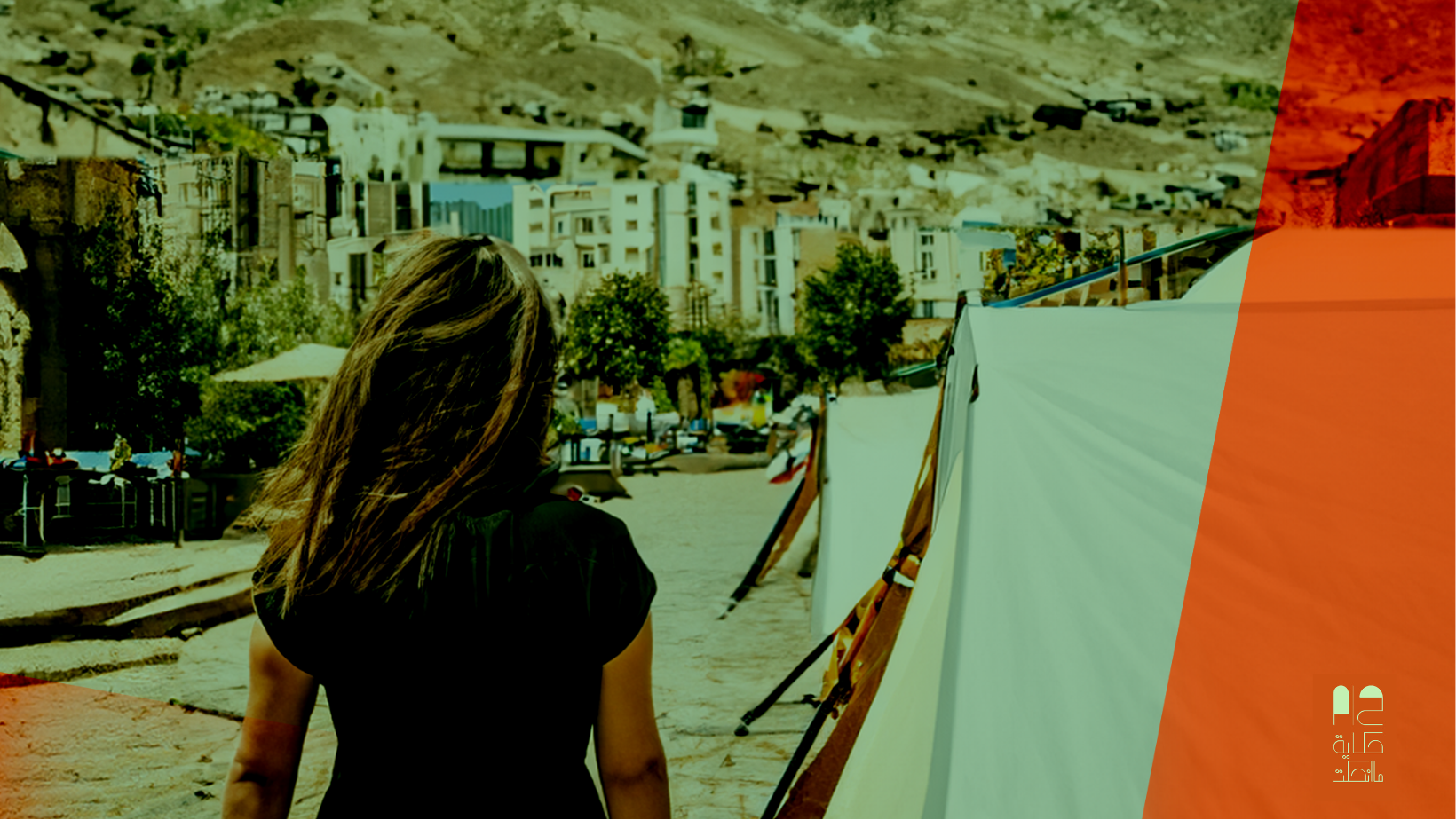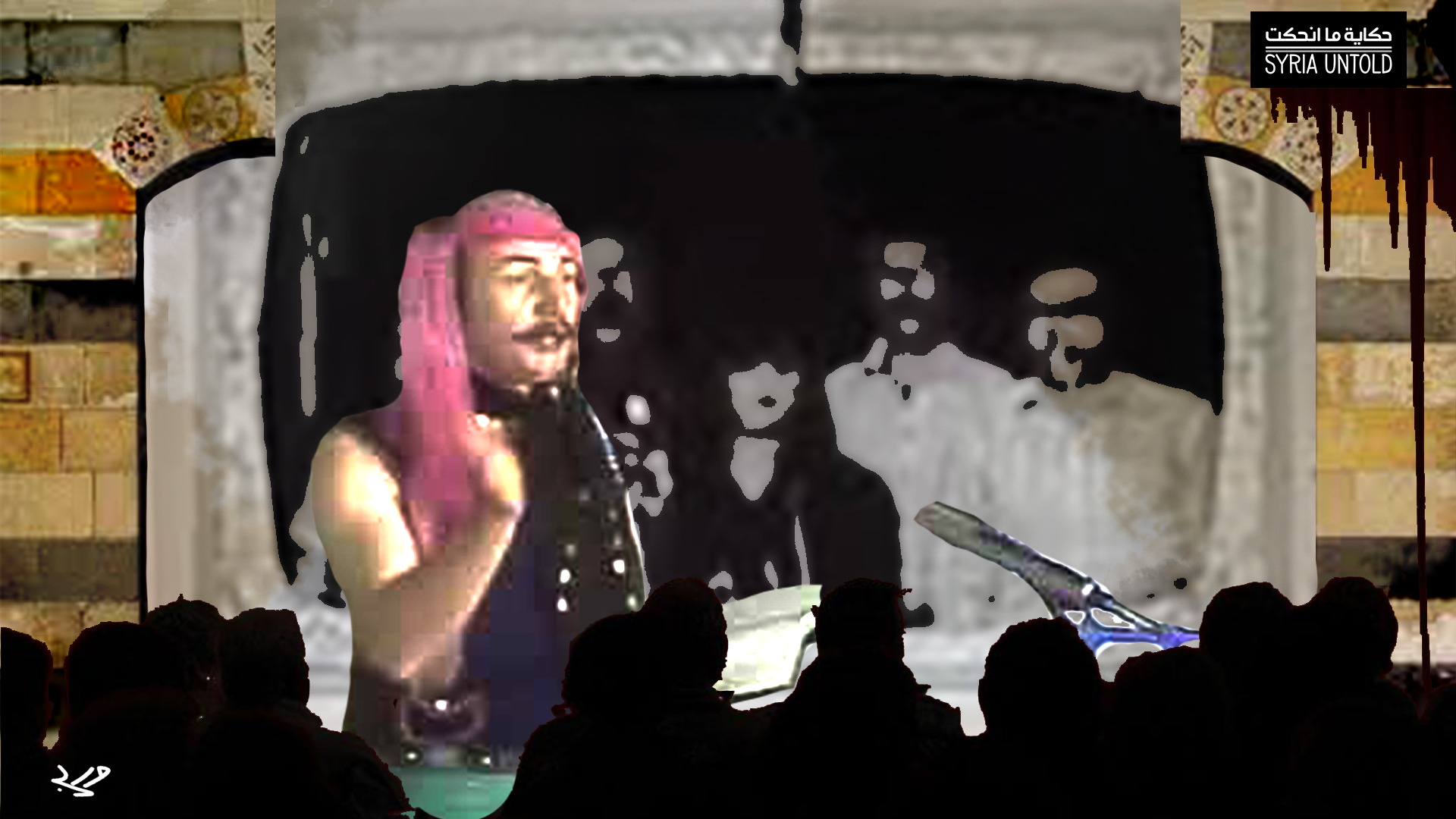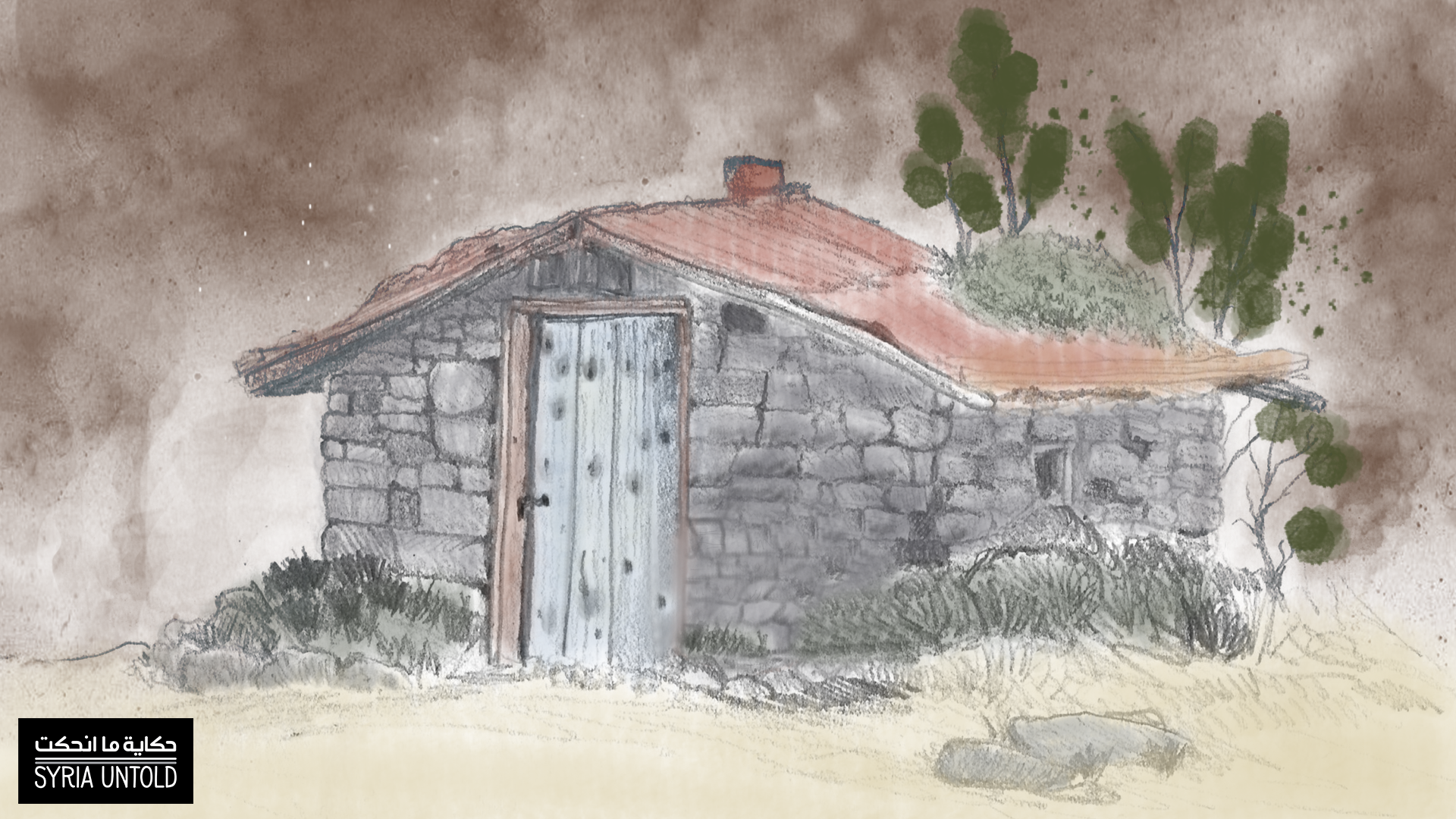This article was originally published on Kohero Magazine.
Walking into a spacious auditorium full of European experts on peace-building efforts in conflict-affected countries, I stumbled upon an announcement of a ’safe space‘ for migrants like myself. The two words were written in blue on a flipchart by the entrance which would be later moved to the corner, where it belongs within an important conference hosted in a religious venue in a German village.
The virtual Hammam
For the following two days, I couldn’t help but feel confused and irritated by the intrusion of this buzzword into such an exclusive white space. A space where people like me, troublesome to the mainstream – migrants and coming from conflict-affected areas, 'the Middle East' – are spoken about on the stage but were represented in the afterparty’s playlist by Shakira’s Waka Waka. Strange that I was longing to get back to Berlin, where there is at least potential to belong to a virtual Hammam with other Syrian women.
‘Probably, the civil society organisation went through a daunting process to secure some funds for this ‘empty’ space,’ I thought, however finding some sympathy with the conference organisers after I had recalled the struggles of migrant initiatives I knew, trying to secure funding for Arabic-speaking activities under the integration umbrella. Their applications were often rejected for not aligning with integration policies that focused on acquiring German language skills and assimilation into ‚German culture‘ which should be the basis for transforming the newcomers into ‘good citizens’.
The pressure of integration policies
When it comes to migrant women from Muslim-majority countries, these integration policies come even with a specific mission ‘to save us’. "They want me to ‘EMPOWER’ women who have survived extreme conditions and made all the way from conflict zones to here!", a researcher and activist working in one of Germany’s biggest migration research told me about the pressure of these policies on her work.
For that logic, a Berlin-based Women Support Group operating in Arabic initially seemed out of place. With almost no funds, the group, however, thrived and expanded beyond the confines of the German capital since 2016. What began as a physical gathering in Berlin in response to the 2015 waves of Arabic-speaking refugees evolved into three virtual groups with the 2020 pandemic, allowing the group to later reach Syrian women in Syria and other European countries.
The virtual gathering of Syrian migrant women, united in their shared experiences and aspirations for mutual support and growth.
What’s intriguing is that unlike the labeled "inclusive space" or "women empowerment" initiatives, this group remained unmarked as such. Nevertheless, the virtual gathering of Syrian migrant women, united in their shared experiences and aspirations for mutual support and growth, captured my interest enough to dub it our "psychological Hammam."
The Curious Case of the Circle of Peace
Much like the traditional communal Hammam, this virtual space transcends physical boundaries to become a sanctuary for self-discovery and healing. Here, Syrian women from diverse backgrounds, initially strangers, come together to bathe in the waters of empathy and understanding, shedding their fears and insecurities as they share their struggles without fear of judgment. In this imaginative space, past traumas are gently cleansed away, and the complexities of migration are navigated with collective wisdom and compassion.
This is the Curious Case of the Circle of Peace, in which I am the only thirty-something Egyptian woman who joined a few years back and stayed ever since. However, in the lead-up to our last annual gathering during Ramadan’s Iftar, I found myself reconsidering my decision to stay. "What could I possibly have in common with a group of Syrian mothers, many of whom are in their forties, fifties, or even sixties?" my anxiety whispered. However, as the gathering progressed, an unexpected answer began to unfold.
My connection to the Circle of Peace traces back to the summer of 2017. I wasn’t a refugee or identified as an immigrant; I was an international student from Egypt who had relocated to Berlin, the new hub for the Arab diaspora, for a summer internship sandwiched between my masters studies in Denmark and the United Kingdom.
It wasn’t until the rainy summer in Berlin preceding the German general elections that migration, integration, and the 'us vs. them' narrative captured my attention. Proposing a feature on refugee women’s initiatives for my German editor, I delved into their challenges in reaching Germany and the importance of providing a space for emotional solace away from integration pressures. Other initiatives I explored didn’t endure.
The influence of Gestalt Therapy
When I finished my studies, the Circle of Peace welcomed me upon my return to Berlin as an immigrant. Even during the pandemic, when I returned to Egypt, the group transcended borders, evolving into a virtual support group.
What is now a Syrian-led women’s support group, started as an initiative by an Austrian-German gestalt therapist in response to the influx of Arabic-speaking newcomers from conflict zones in 2015. Gaby, a Berlin resident for 30 years, recognizes the importance of using the mother language to provide psychological assistance to Arabic-speaking woman refugees. It was possible for her to facilitate a weekly group in her clinic in the center of Berlin with the help of a Syrian translator. As unfamiliar as Arabic was to Gaby, the idea of a support group was for these Arabic-speaking women.
Longing for connection
"I never encountered such a concept until I left Syria in 2012. In our culture, it resembled a close bond with a female friend or sister," Rawaa Al Samman, who was a key source for my article on the Circle of Peace, and has now become a dear friend, shared her perspective. She is a fifty-something divorced woman from Damascus who joined the group in 2016 and later took over the role of facilitator.
Neuro-Linguistic Programming (NLP), explores the connection between neurology, language, and learned behaviors to support goal achievement and communication.
Rawaa’s smile widened over our messenger video call when I inquired about the roots of the Circle of Peace in her previous life in Syria. It dawned on her that she had always yearned for this connection with other women, particularly as the only daughter in a family of three boys. Even after she got married and gave birth to three sons, she found herself longing for that connection. With some free time on her hands when her children went to school, she took the initiative to organize women’s salon gatherings, inviting neighbors who shared her interest in exchanging ideas, books, and experiences about raising children. From being a stay-at-home mom, she transitioned into working as an NLP trainer. Neuro-Linguistic Programming (NLP), that was popular in Arabic-speaking countries in the 2000s, explores the connection between neurology, language, and learned behaviors to support goal achievement and communication.
The way to becoming a facilitator
Her journey took her from Syria to Algeria for a few years before she eventually settled in Germany in 2015. Even in Algeria, she continued organizing women’s salon gatherings with the same concept. This deep-seated desire to connect with other women is what led Rawaa to join the Circle of Peace group in Berlin. Over time, she progressed from being a participant to a facilitator, not only for the Berlin-based group but also for two other groups, including one for Syrian women still residing in Syria.
Dolma from a plastic plate
25 March 2024
When my friendship with Rawaa cemented over our shared stories about growing up in unhappy homes and the hard things in our past lives, we found that her expercience differed from mine. In my family, I had many women and nieces to talk to about the hard things. On the surface, the Circle of Peace resembles the cherished thursday evening gatherings at my grandmother’s house in Egypt, where her five daughters and their daughters would gather over food, watch TV to complain about their marriage problems.
The importance of trust
Unlike me, the experience of opening up and sharing intimate aspects of her life with other women was initially unfamiliar to Rawaa. It felt like a foreign language to her. "In my previous training experience I sat in the ‘listener seat’ she says’." Moreover, being a private person was her defense mechanism as a woman in Syria.
Initially the group was formed to meet a deep need for these newcomers to Germany, which is to be connected but at the same time to feel authentic. In reaching out to ‘the other’, even in this case another Syrian woman, every woman risks revealing who she is, which makes her vulnerable to judgment or criticism, which Rawaa feared at the beginning. "Some people are interested in joining our group until they know that we talk about ourselves," she adds.
Building trust is essential in this experience. Through what Esther Perel, the Belgian-American psychotherapist sees as a ‘leap of faith’, I have witnessed how facilitation becomes the key to fostering trust and openness among group members. Rawaa also noticed how Gaby used tools from Gestalt therapy to handle the group dynamics. In the initial stages of the group, Gaby would start the session by highlighting a set of rules, such as confidentiality and respect. "It is rare now that we need to mention these principles during our sessions, as they have become second nature to us," Rawaa explains.
Deep listening is paramount, allowing each woman the space to share her thoughts and experiences without interruption.
Gestalt therapy is is a psychotherapeutic approach that focuses on present experiences, promoting self-awareness and insight into relational patterns. Originating from the German word for "whole," it emphasizes holistic understanding of the therapeutic journey.
The process of building trust among a group of unfamiliar women and facilitating meaningful discussions involves employing various tools. Deep listening is paramount, allowing each woman the space to share her thoughts and experiences without interruption. Rawaa, the facilitator, ensures that everyone has the opportunity to speak at length, whether briefly expressing joy or delving into deeper issues for an hour or more.
Unlike traditional therapy sessions constrained by time and money, here, there is no rush; interruptions are gentle, offering moments of reflection through insightful questions. This approach fosters curiosity and understanding, moving beyond superficial discussions to transformative insights. After each woman shares her story, the floor is opened for others to offer their perspectives, creating a sense of connection and solidarity within the group.
The self reflected in the other
In my recent session, Rawaa commended my level of self-reflection while sharing a recent conversation with a friend, recognizing its importance within our Circle of Peace. She urged fellow group members to embrace this introspective approach, highlighting its significance in our collective journey.
However, I attribute the credit for my depth of self-reflection entirely to the other women in our Circle of Peace. Engaging with them has served as a reflective mirror, allowing me to explore my experiences as a migrant in relation to theirs. Through these interactions, I’ve formed meaningful bonds without feeling the need to conform. This stands in stark contrast to the typical integration process, as Rawaa has pointed out to me. Often, newcomers are pressured to assimilate and sacrifice their identity in order to fit into a new culture. Instead, Rawaa emphasizes the importance of supporting individuals in remaining true to themselves while navigating their new environment.
Women seek refuge from society in a northeastern Syrian village, no men allowed
07 July 2020
As time has passed, our group’s composition has evolved. Many of the younger members from the Berlin-based contingent have become less active, preoccupied with the demands of settling into their new lives in Germany. However, the remaining elder members have demonstrated that this group fulfills their need for belonging and connection. To me, they embody a wealth of experience, resembling mothers and teachers, reminiscent of the aunts I lost in the complex process of healing from intergenerational trauma. Within this nurturing environment, I came to acknowledge the intergenerational trauma present in my own family, especially its effects on the mother-daughter relationship over multiple generations.
More than a psychological support group
In my experience, gaining perspective from a healthy distance is crucial to truly understanding oneself. The Circle of Peace offers a distinctive space for introspection, facilitated in a way that enables us to scrutinize our thought processes and address our biases. The overarching aim of this journey is to attain inner harmony and establish meaningful connections with the other.
For me, the Circle of Peace has evolved beyond the conventional Western model of a psychological support group. Over the years, it has transformed into a hybrid in-between space. Rawaa’s facilitation tools have played a crucial role in this evolution. In our sessions, I feel as though we shed layers of societal expectations and reveal our true selves. With Rawaa’s guidance, we create a safe space where we can be emotionally naked, peeling away layers of pretense with gentle yet profound honesty.
The Butterfly Effect
Together, we support each other, cleansing our souls from the burdens of our marginalized positions in society. This transformative process transcends the limitations of traditional support groups, offering a deeper, more authentic form of healing and connection. It’s crucial to openly discuss our experiences both in our home countries and in exile, using our native language and engaging with individuals with whom we feel safe and understood.
During our last sessions, I came to the conclusion that the Butterfly Effect of the Circle of Peace extends from its core circle to various smaller circles, including the social circles of the mothers, significantly impacting the lives of their families. Moreover, this impact transcends the immediate circle, influencing the broader community where these women belong. For example, Rawaa, who recently completed vocational training in Gestalt therapy and works part-time as a social worker with abused married women, collaborates with Gaby and others to organize the first-of-its-kind vocational training program for Arabic-speaking Gestalt therapists. Since Gestalt therapy is not typically covered by German public insurance, Gaby and her small team are founding an NGO so they can fund their vocational training for Arabic-speaking therapists and provide free-of-charge therapy sessions for Arabic-speaking clients.
By the end of our last video call, I felt a sense of belonging and my anxiety whispered, "Let’s organize something for this year’s Iftar."


